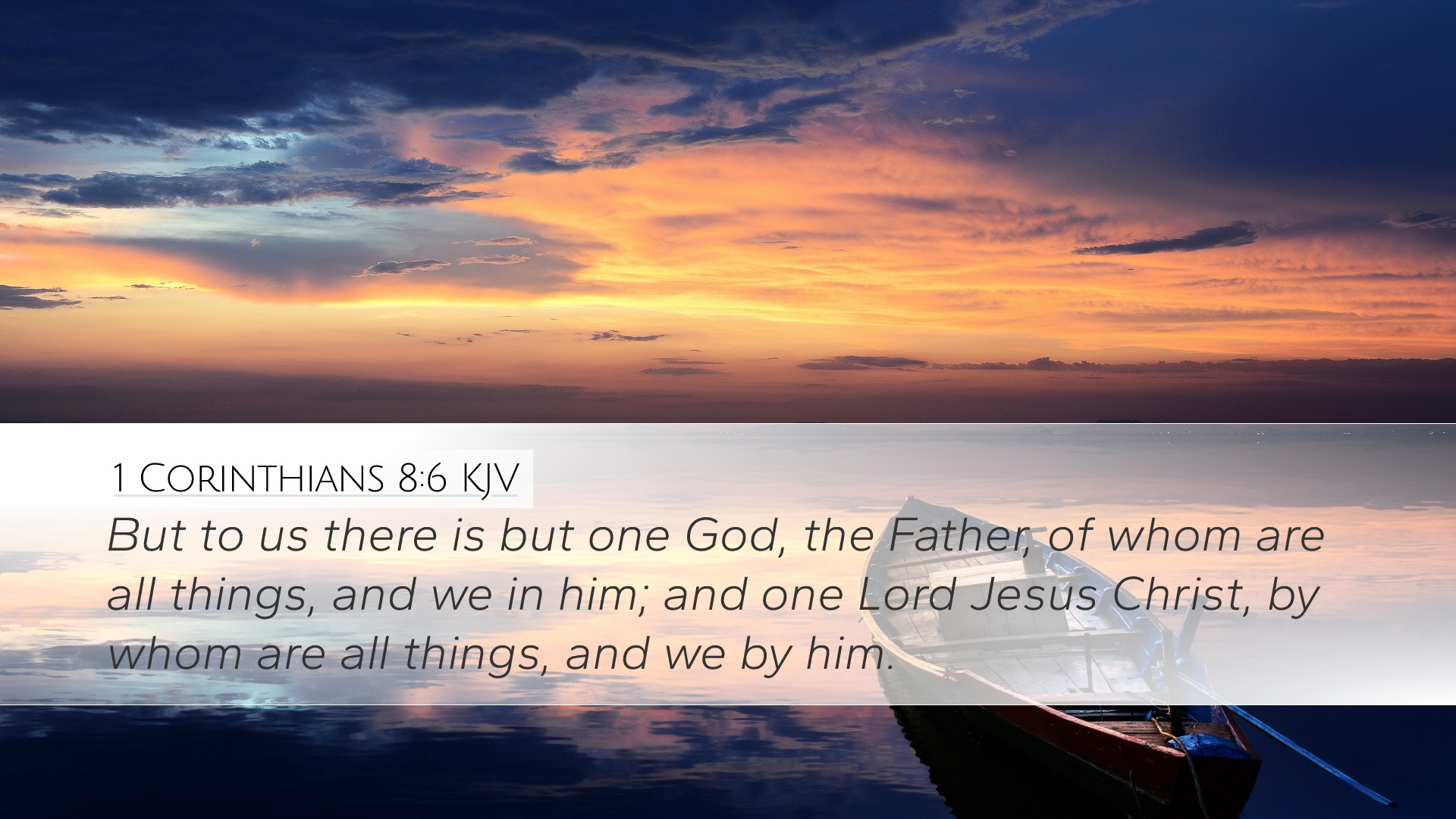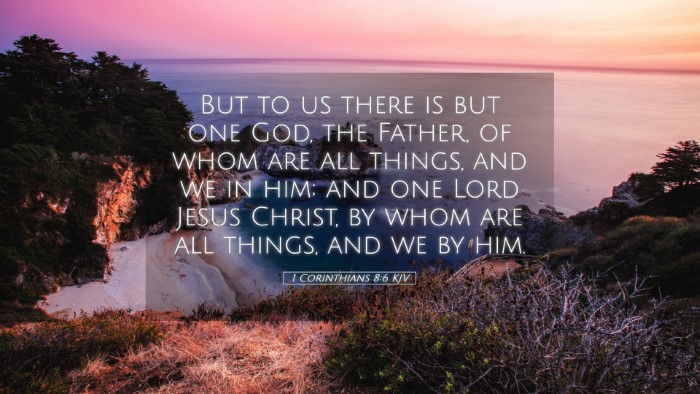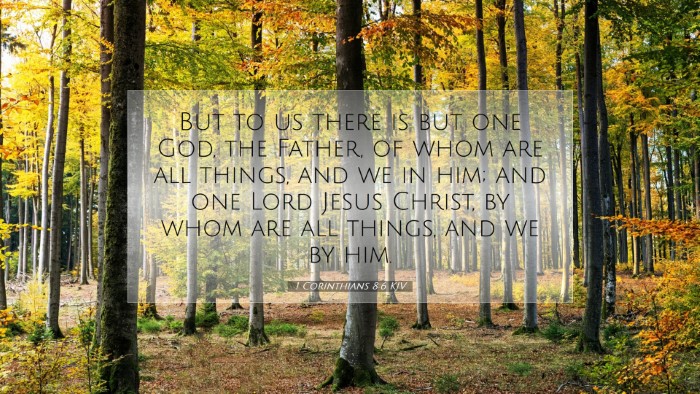Old Testament
Genesis Exodus Leviticus Numbers Deuteronomy Joshua Judges Ruth 1 Samuel 2 Samuel 1 Kings 2 Kings 1 Chronicles 2 Chronicles Ezra Nehemiah Esther Job Psalms Proverbs Ecclesiastes Song of Solomon Isaiah Jeremiah Lamentations Ezekiel Daniel Hosea Joel Amos Obadiah Jonah Micah Nahum Habakkuk Zephaniah Haggai Zechariah Malachi1 Corinthians 8:6
1 Corinthians 8:6 KJV
But to us there is but one God, the Father, of whom are all things, and we in him; and one Lord Jesus Christ, by whom are all things, and we by him.
1 Corinthians 8:6 Bible Commentary
Commentary on 1 Corinthians 8:6
Bible Verse: "Yet for us there is one God, the Father, of whom are all things, and we for Him; and one Lord Jesus Christ, through whom are all things, and through whom we live." (1 Corinthians 8:6)
This verse stands at the intersection of theology and daily living, addressing the complexities surrounding food offered to idols in the Corinthian context. It showcases the foundational belief in the oneness of God while affirming Christ's divine lordship.
Theological Insights
The Apostle Paul emphasizes the unity of God and His sovereign relationship with creation. Both Matthew Henry and Albert Barnes agree that Paul began by countering the notion of many gods that permeated the Corinthian culture.
- On the Nature of God: Paul asserts, "for us there is one God, the Father." This affirmation is rooted in the Old Testament, reflecting the Shema (Deuteronomy 6:4), highlighting the monotheistic essence of Christian belief.
- On Creation and Purpose: "of whom are all things" speaks to God's creative authority. Everything exists because of the Father’s will and purpose, underlining His supremacy and the theological principle that all creation is dependent upon Him.
- On Human Existence: The phrase "and we for Him" encapsulates humanity's ultimate purpose. The Christian life is not merely about existence but living in relationship with the Creator, meant to glorify Him through our very being.
The Role of Christ
Moving to the next part of the verse, Paul introduces the Lordship of Jesus Christ: "and one Lord Jesus Christ, through whom are all things, and through whom we live."
- Christ as the Mediator: Adam Clarke notes the dual role of Christ as both creator and sustainer. Everything comes into existence through Him, and believers find life in Him. This underscores the essential Christian doctrine of the Trinity.
- Living Through Christ: The idea of living "through whom we live" presents the profound truth that Christians do not live for themselves or by themselves. Their life is animated and sustained by the power of Christ, affirming the necessity of a relationship with Him.
- The Relationship of Father and Son: The usage of "God, the Father" and "Lord Jesus Christ" signifies a relational hierarchy within the Godhead, essential for understanding the Christian doctrine of the Trinity. This distinction emphasizes the uniqueness of the roles while maintaining their unity.
Practical Application
In light of the theological truths presented in this verse, various implications can be drawn for contemporary Christian living:
- Rejecting Idolatry: The backdrop of idols in Corinth provides a necessary lens through which we must examine our own lives. Anything that takes the place of God, whether literal or metaphorical, should be rejected.
- Living in Relationship: The concept that we live "for Him" compels believers to reflect on their daily choices. Are we living for ourselves or for the glory of God? This calls for a transformative mind and heart dedicated to Him.
- Unity in Diversity: This verse promotes unity among believers. Despite differing backgrounds, the acknowledgment of one God and one Lord fosters a sense of belonging and fellowship in the body of Christ.
Conclusion
1 Corinthians 8:6 is rich with doctrinal significance, calling Christians to reflect on their understanding of God’s sovereignty, the role of Christ, and their purpose in living for Him. The insights from Matthew Henry, Albert Barnes, and Adam Clarke guide pastors, theologians, and students of the Scripture toward a deeper appreciation of the Christian faith in its simplicity and depth.
As we navigate through the complexities of belief and practice, may we continually affirm the truth of this verse, grounding ourselves in the one God and the one Lord, Jesus Christ, both as our Creator and Sustainer.


